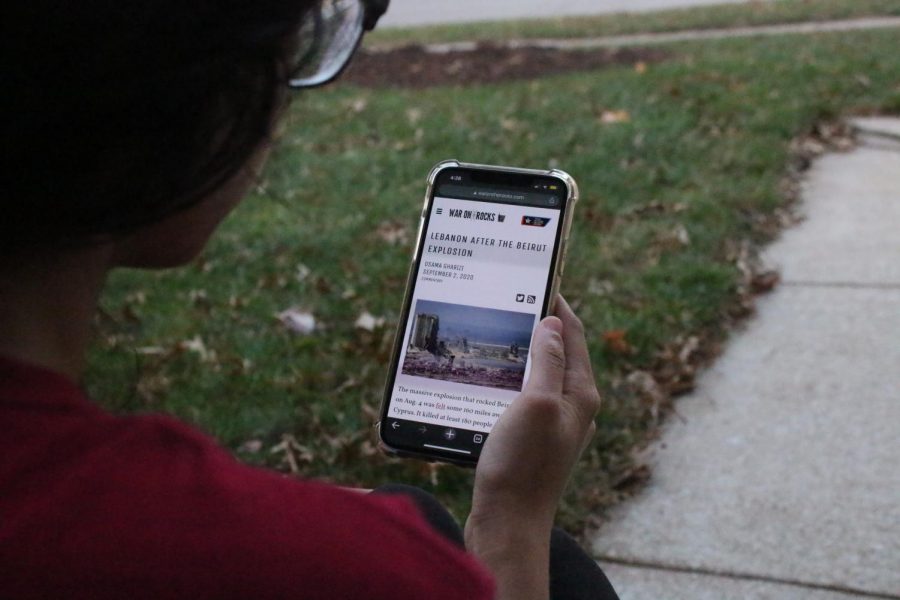Gen-Z is too Normalized to Tragedies
Media by Anvi Talyan
When I opened Instagram one day, the last thing that I was expecting was a ton of posts about Lebanon. Post after post was about the horrific blast that caused destruction and chaos. While I did feel awful for the people that this event has hurt, I also felt numb.
When I opened Instagram one day, the last thing that I was expecting was a ton of posts about Lebanon. Post after post was about the horrific blast that caused destruction and chaos. While I did feel awful for the people that this event has hurt, I also felt numb. It just seemed like another bad event to happen in a bad year.
Many people in our generation, Gen Z, may also feel detached to bad events.
Between social media and the news, our generation has become so normalized to tragedies that we have become numb.
According to the article “Boomers, Gen X, Gen Y, and Gen Z Explained” by Kasasa, the average age for a person in Gen Z to get a phone, is 10.3 years old. Our generation has been exposed to social media while we were still developing as children.
Through it, we have been able to see up close what tragic events look like. We have gotten so used to the “bad” things that they have become a normalcy.
For example, this year there has been a lot of important information, such as the Muslim concentration camps in China, that has been spreading.
However, the social media guidelines for these posts are unreasonably lax, letting basically anything be posted. If something is triggering, there is the “Sensitive Warning” sign. This does not explain what might be the trigger so someone might click on it out of curiosity and see something awful.
I see graphic videos left and right, showing a person dying and taking their very last breath.
This is horrifying.
We spread these videos without a second thought, not fully understanding the tragic nature of it. Spreading these videos and seeing these videos a multitude of times can make a person dying seem normal.
This normalcy can lead to a lack of empathy. The article, “Emotional and physiological desensitization to real-life and movie violence,” by Steview Mrug, states that a person’s empathy will start to diminish the more that they are exposed to violence.
The news also contributes to our exposure to violence. We have grown up around the news, which has been a big factor in desensitizing us. We have seen it shown through our social media pages and the television as we get ready for school. As we have grown up, we have been shown and told about bad events happening around the world.
These tragic events that start to become an everyday occurrence are creating armour around us: it does not let the truly bad nature of an event fully sink in.
We need to start to shed this armour so that we can truly recognize how awful the events that are happening all around the world really are.
Your donation will support the student journalists of Marquette High School. Your contribution will allow us to purchase equipment and cover our annual website hosting costs. You may become a PATRON by making a donation at one of these levels: White/$30, Green/$50, Blue/$100. Patron names will be published in the print newsmagazine, on the website and once per quarter on our social media accounts.

Anika Talyan, senior, is the Copy Editor for the Marquette Messenger. This is her fourth year on staff. At MHS she is involved in Robotics and RSD Lives....

Anvi Talyan, senior, is an editor-in-chief for the Marquette Messenger, with this being her fourth year on staff. Outside of writing, she is interested...







